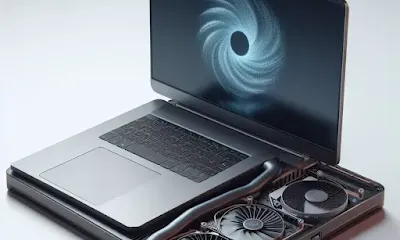In the world of ever-evolving technology, laptops have become indispensable. With constant use, especially for high-performance tasks like gaming, the question arises, are cooling pads good or bad for laptops?
Quick Answer: Cooling pads, when used correctly and are compatible with your laptop, do not damage laptops; they aid in preventing overheating and enhancing performance. However, improper use or compatibility issues can lead to problems such as blocked vents and ineffective cooling.
What are Cooling Pads?
Cooling pads are designed to help control the temperature of the laptop. They’re placed beneath the laptop, enhancing ventilation and improving the performance of the laptop’s internal cooling system. For avid users, this accessory seems almost essential, but the question is, are cooling pads bad for laptops?
Compatibility Matters
Before diving into the nitty-gritty, it’s crucial to ensure the cooling pad is compatible with your laptop. Not all pads suit every laptop, and using an incompatible one can block the vents of the laptop, causing more harm than good.
Advantages and Disadvantages
The Good Side
- Prevent Overheating: Cooling pads can help prevent damage by maintaining an optimal temperature, especially when the laptop is overheating.
- Enhanced Performance: They’re designed to help improve the performance of your CPU and other internal components, offering a smoother gaming experience.
- Extended Lifespan: By controlling temperature, cooling pads preserve the laptop’s lifespan, preventing permanent damage.
The Flip Side
- Drain Battery: One common concern is that cooling pads drain the battery since they use the laptop’s port for power.
- Noise: Some users find the noise produced by cooling pads to be a disturbance, especially during quiet tasks.
- Potential Blockage: If not placed correctly, cooling pads can clog the vents, hampering circulation and causing any damage they were meant to prevent.
Addressing Common Concerns
Can Cooling Pads Cause Damage?
While cooling pads are designed to prevent overheating and improve performance, they won’t cause damage if used correctly and are compatible with your laptop. Ensuring proper placement is key to avoid blocking the laptop’s vents and hampering air circulation.
Do They Drain Battery?
Yes, cooling pads can drain the laptop’s battery as they draw power from its port. However, this shouldn’t be a deal-breaker. If you’re using your laptop near a power source, this disadvantage can be easily overcome.
Are They Noisy?
The noise from cooling pads can be a concern for some users. However, many models in the market operate quietly, so it’s about finding the one that suits your noise tolerance.
Preventive Measures and Best Practices
Keep Vents Clear
Ensure that the cooling pad doesn’t block the vents of the laptop. This will help maintain effective ventilation and prevent any potential damage.
Use on a Flat Surface
Place your laptop and cooling pad on a flat surface, like a desk, to facilitate optimal air circulation.
Regular Maintenance
Keep the cooling pad and laptop’s vents clean and dust-free. Dust can clog the ventilation system and heat sink, causing problems related to overheating.
Check Compatibility
Always ensure the cooling pad is compatible with your laptop. This will prevent issues like blocked vents and ineffective cooling.
Consult Manufacturer
If your laptop is experiencing symptoms of overheating, consult the manufacturer. Sometimes, the issue might be due to faulty software or internal components, which a cooling pad won’t fix.
Conclusion
So, do cooling pads damage laptops? The answer is, they shouldn’t, as long as they’re used correctly and are compatible with your laptop. While they do have some disadvantages, like noise and battery drain, the advantages of preventing overheating and extending the laptop’s lifespan are significant. Keep in mind the preventive measures and best practices mentioned here, and you can enjoy an enhanced laptop experience without causing any damage.

